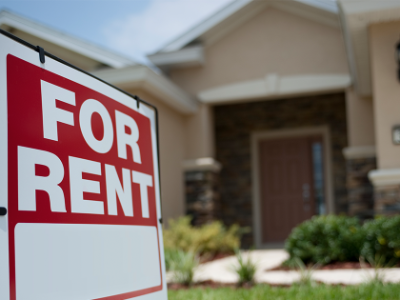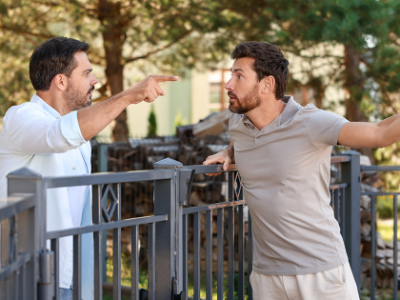When you finally arrive at closing day in the home-buying process, it can sometimes be a whirlwind of unknowns and confusion: How much are closing costs on a house? Who pays closing costs? What financial information – if any – do you need to take with you?
Then there’s all the of paperwork you’ll have to sign when you close on your new home. So how can you be ready for all the documents you’ll be asked to review – and understand? Prepare for the ride ahead so you can close on your loan with confidence, with some helpful tips from ARAG network attorney Frederick Anderson.
Closing on a house: What happens?
Often called a "settlement," it's when you, the lender and the seller simultaneously exchange all documents and funds required to complete the transaction. As a buyer, you'll sign a stack of legal documents related to the transfer of property ownership, pay closing costs, fees and the initial escrow payment for your homeowner's insurance and property taxes.
Understand there are really two closings.
Anderson explains there are usually two closings for the buyer: one that involves the lender for the funding of the transaction and one for the purchase transaction. “I’d estimate that 60 percent of the time, they are completed together; however, even when they occur in the same office, it’s important to remember they are two distinct closings,” Anderson says.
Get a head start on reviewing paperwork.
For both transactions, Anderson suggests the buyer gets all the documents before the closing and look them over; that way the review doesn’t occur while everyone is sitting and watching.
“It’s a good way to save time and possibly address any questions or mistakes in advance,” he notes. “For example, the lender has its ‘forms’ and it takes a tremendous effort to have them change language unless it is really wrong. However, some of the form language may be wrong for the transaction.”
Where does it take place?
If you're taking out a loan, closing usually takes place at the office of a settlement agent. It can be the title company (the company that insures your ownership of the property) or, in some states, the lender's office or escrow company. If buying with cash, you and the seller can decide the most convenient location.
Who attends the closing?
Who attends depends on many factors, but in general attendees include:
- Home buyer (you)
- Home seller or builder's representative (if buying a new home)
- Attorneys (buyer and lender, if applicable)
- Closing agent (they run the meeting)
- Seller's real estate agent
- Mortgage lender
How should I prepare?
By law, your lender has to send you something called a “closing disclosure” at least three days before your closing date. This document will include the terms of your loan and the final numbers for any closing costs you will owe. Review this document to confirm that all the details are accurate and as you expected. Write down any questions you have and bring them to the closing (or consult with your agent or attorney beforehand).
If you will owe money at the closing, make sure you plan ahead to get a cashier’s check or have a wire transfer done. Personal checks are NOT accepted.
What do I need to bring?
The day of the closing, make sure you have:
- The closing disclosure (to compare to the documents)
- Any questions you’ve written down
- Your cashier’s check or proof of wire transfer to pay for closing costs
- Your driver’s license or another acceptable form of photo identification
- Proof of homeowners insurance
- Any other documents your bank or lender requires
- Your co-borrower or the person co-signing your loan, if applicable
What exactly am I signing?
Every legal and financial document tied to a closing is important, but there are a few that are critical to the process. Anderson points out, “The settlement statements are the keys to the financial side of each transaction, so make sure the figures are reviewed for accuracy and questioned as to how calculated.
At the closing, you’ll be signing a lot of important documents, which will vary based on your state laws and the type of home you’re buying. But you can expect to see the following checklist of documents:
- A promissory note, which outlines the terms of your loan and states that you promise to pay back what you’re borrowing.
- A “truth in lending” statement, which details the total amount of your loan over its lifetime, plus the interest rate and annual percentage rate.
- Your mortgage.
- A monthly payment letter, which breaks down your monthly mortgage payment by principal, taxes, interest, insurance, etc.
- The closing disclosure, which should match the one you received before closing.
- Title or warranty deed, which transfer ownership of the home.
- Proration papers, which dictate how costs such as homeowner’s association dues, property taxes and utilities are being divided up for that month.
- Statement of identity for the title company to differentiate you from anyone else with the same or similar name.
- Declaration of report, which states that you’ve seen all inspection reports done on the property.
- Abstract of title, which includes all documents related to the title of the property – for older homes, the abstract can be VERY thick.
How long does it take to close on a house?
Buying a home is a major financial commitment. There’s no average time to close on a house, so don’t rush. Make sure you understand everything you’re signing and don’t be afraid to ask questions. It’s okay if it takes some time. Plan on at least two hours – if everything goes smoothly, it could be less, and if something unexpected happens it could take longer. Take a deep breath, take your time and, once you’re done signing all that paperwork, take your keys to your new house!
Ask questions if it’s over your head.
During both closings, there’s a lot going on. The deed of title is delivered to the buyer, the title is transferred, financing documents and title insurance policies are exchanged, and the agreed-on costs are paid. Some of the final documents, including the deed and mortgage or deed of trust, are signed by the appropriate parties, and then delivered to the county recorder to be recorded.
If you’re not a real estate attorney or a realtor, chances are these documents are going to appear foreign to you, a blur of legal and financial terms you’re expected to understand and agree to.
Anderson encourages his clients to review all the documents to understand them as much as they can and ask questions of anything they do not understand. “This is usually the largest financial transaction you’ll complete in your lifetime, so you should feel comfortable with the process and the documents. I also recommend using legal counsel if you need advice.”



